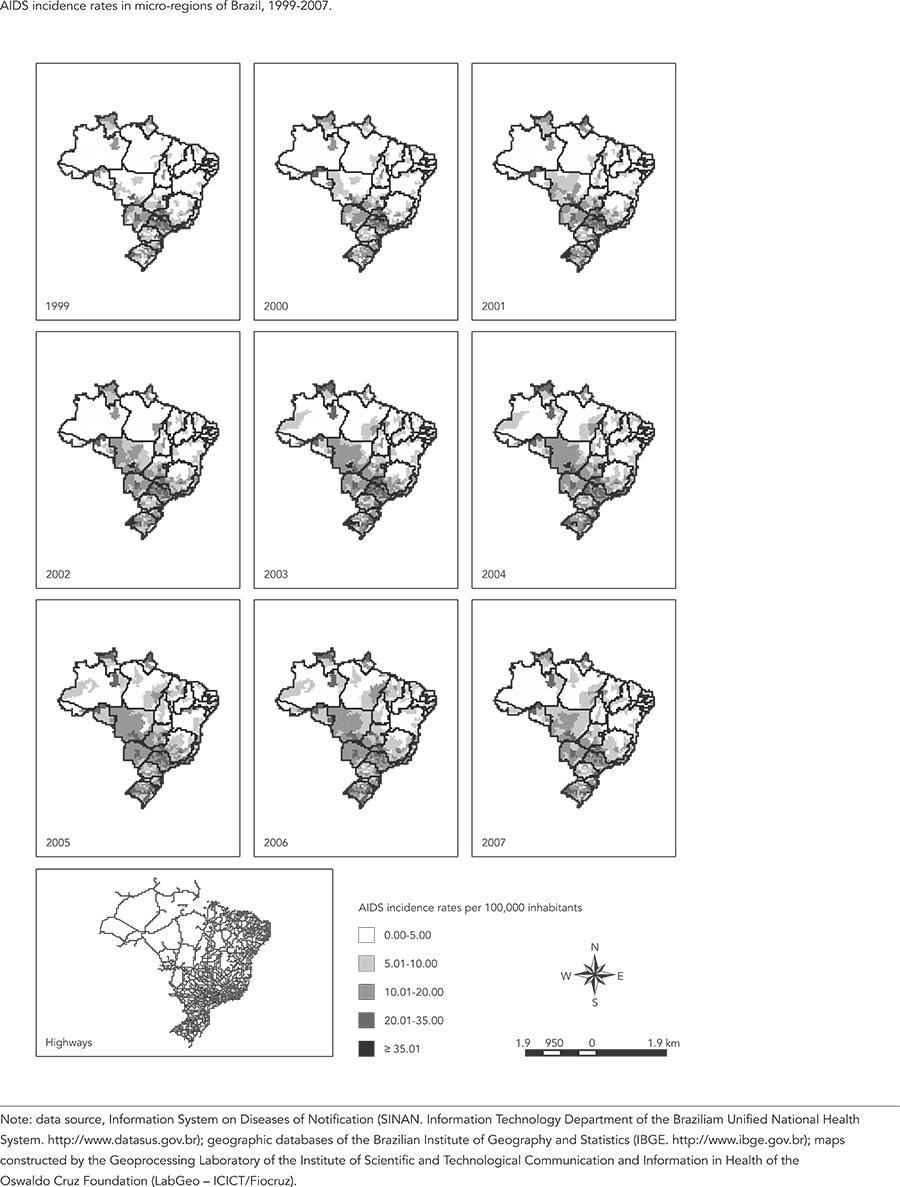The trend towards decline and stabilization of the AIDS epidemic in Brazil should be analyzed carefully, since aggregate data can mask regional or local inequalities in such a large and diverse country. The current study reevaluates the epidemic’s spatial dissemination and the AIDS-related mortality pattern in Brazil. The study considered all AIDS cases diagnosed in individuals over 18 years of age and living in Brazil, as well as AIDS deaths recorded in 1998-2008. Three-year moving average rates were estimated, and a spatial analysis was conducted using a local empirical Bayesian method. The epidemic was only found to be expanding in the North and Northeast regions, while declining in the rest of the country, especially in the Southeast. According to the findings, the apparent stabilization of AIDS mortality tends to mask regional disparities. Social determinants of health and regional disparities should be taken into account in program development and policymaking.
Acquired Immunodeficiency Syndrome; Spatial Analysis; Ecological Studies





